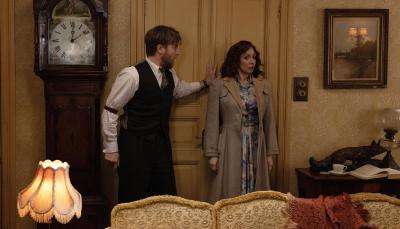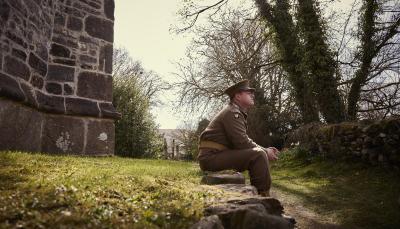'All Creatures Great and Small': How a Long-Running TV Series Endeared Itself to the British Public
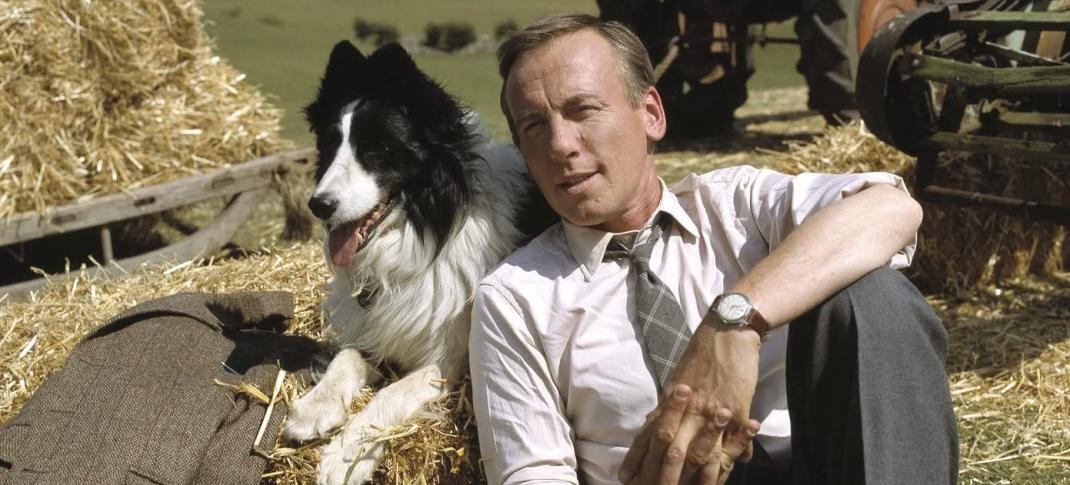
James Herriot’s short stories about his life as a veterinarian in rural Yorkshire are beloved worldwide and still remain immensely popular years after the death of the author, Alf Wight (1916-1995). His humor, deftly drawn characters of both the two- and four-legged variety, and thoughtful portrayal of a disappearing way of life in one of the most beautiful spots in England made his stories a natural fit for conversion to the big—or small—screen.
The first two attempts, both feature films, didn’t do very well. The original All Creatures Great and Small, a 1974 Hallmark presentation, disappeared into rightful obscurity, despite the presence of Anthony Hopkins as Siegfried Farnon. Two years later another attempt, It Shouldn’t Happen To A Vet, crashed and burned.
But Herriot’s compact storytelling seemed ideally suited to a television series, although it paired two then-unknown young actors with veteran Robert Hardy, a well-respected Shakespearean performer.
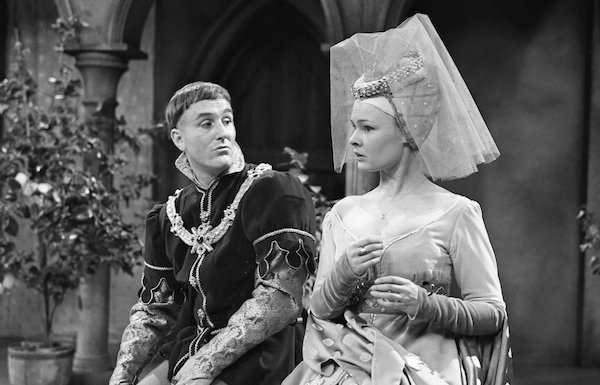
The following clip is from a documentary about the making of the series and the casting, with the perspectives of Hardy, and of Christopher Timothy (James Herriot) and Peter Davison (Tristan Farnon).
It was a winning combination—nostalgia, drama, comedy, a sense of community, beautiful scenery, and animals of all types and temperaments.
Airing first in 1977, the series version of All Creatures Great and Small was a major hit by 1978, and the third season ended in 1980, as Herriot and the Farnon brothers went off to war. It seemed a natural stopping place, but audience demand was great enough that Christmas specials were created in 1983 and 1995, and a new season began in 1998 featuring life after the war.
Timothy had left the show by that point, and was replaced by a seriously Scottish character who wore a kilt and played bagpipes occasionally, Calum Buchanan (John McGlynn). The series ended with the Christmas special of 1990, making a total of 90 episodes, only the earliest of which were based on Herriot’s books. When they ran out of material, the writers were given permission by Herriot to create their own. At its peak, the U.K. audience for the series topped 13 million.
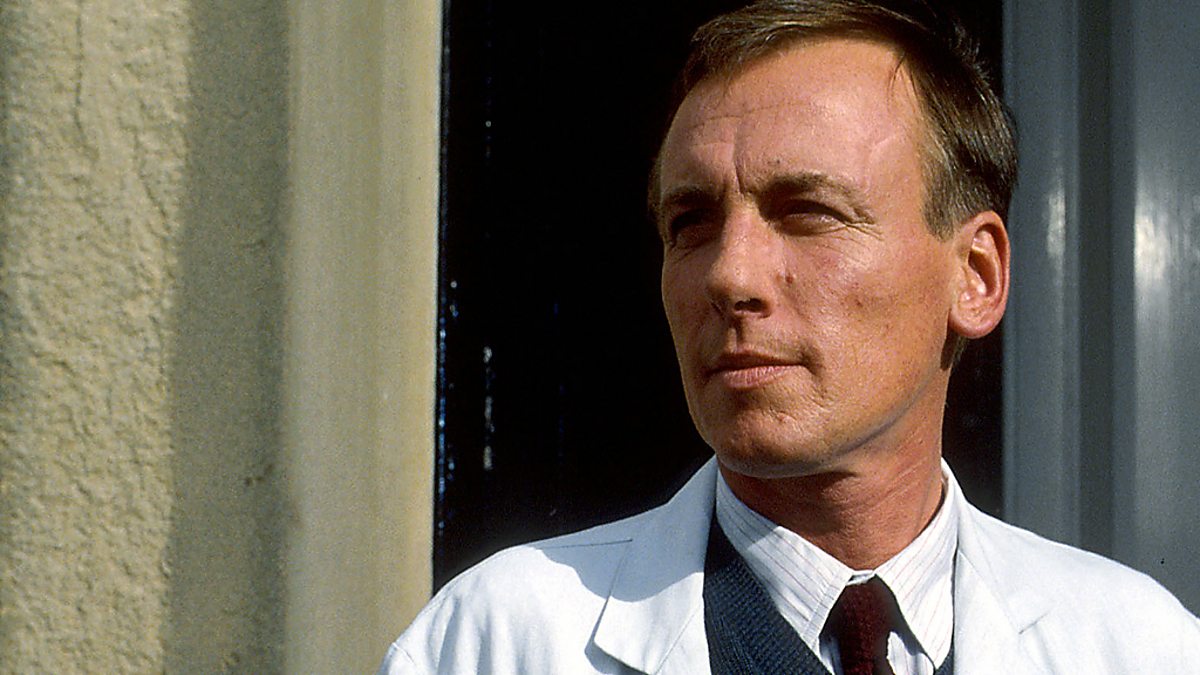
All Creatures Great and Small was the right series for the times. It spanned the period of Margaret Thatcher’s three terms as Prime Minister, in which the British dealt with high unemployment, economic misery, and dramatic changes in British society. It was comforting to look back at a time when equally challenging conditions existed, and Herriot and the writers never sugarcoated the misery of the 1930s.
The stories begin with young veterinarian James Herriot, just qualified and desperate for a job, any job, however bad the pay, in his profession. The family-owned farms of the Yorkshire Dales were holding on by a thread, there was massive unemployment in the towns and cities, and many lived in poverty. A recurring theme of Herriot’s stories is that people who had very little could still practice kindness toward their neighbors and their animals. Even the practice had to accept a barter system as payment in many cases because there just wasn’t enough cash to cover veterinarian bills.
There’s also a nostalgia for the civility and formality of the past, sometimes used by Herriot for comic effect (remember the chronically farting boxer dog whose genteel owner could not describe his condition?). Farmers address their veterinarian, a much younger man, as “Mr. Herriot”, because he’s an educated professional; he may address them by their first names. There's also a lot about food and meals in the books, and on the screen. Viewers may have salivated to see ridiculously low prices (by contemporary standards) at the Darrowby butcher’s shop.
There was also an astonishing reaction when Carol Drinkwater, as Helen, a farmer's daughter who marries James Herriot, made an appearance wearing trousers. She was one of the first women in the area to do so, according to Herriot, but viewers were shocked at this alleged anachronism. More clutching of pearls followed when viewers found out about the off-screen romance between Timothy and Drinkwater (it didn’t last). Carol received mailbags full of proposals of marriage from besotted male fans who enjoyed both the trousers and her wholesome rustic charm.
Timothy, who had faith in the series from the start despite a rocky beginning with casting problems and a broken leg early in the first season, later found himself typecast:
Every book you saw on a bus or a train at that time was by Herriot. People reading them would laugh out loud. I knew if you made a series of that, with the gorgeous Yorkshire Dales as scenery, it couldn’t fail. But for years after, my agent was constantly shouting down the phone: “He’s an actor, not a vet!”
In 2000 he began a six-year stint on the BBC drama Doctors and then joined the Eastenders cast as Ted Murray. In 2018, he and former co-star Davison reunited for Vintage Roads Great & Small, a three-part documentary that saw the pair travel the country in classic cars. He and Davison have also narrated the popular BBC documentary series The Yorkshire Vet.
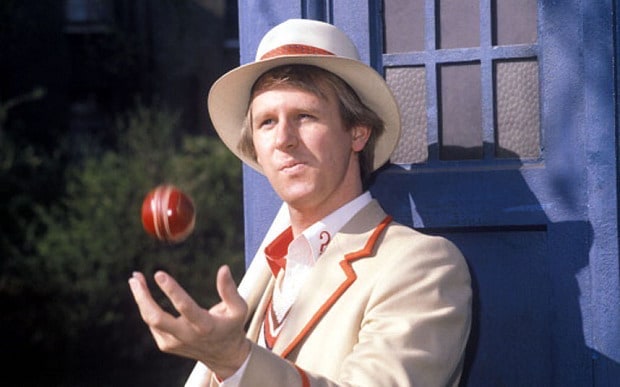
Davison, who also went on to be Doctor Who's Fifth Doctor, and with many TV and film credits following, remembers:
With my south London accent, I was intimidated at the thought of playing younger brother to Robert Hardy, who was cast as Siegfried. At drama school they’d pumped received pronunciation into us, but Robert was a classical actor, with an aristocratic lineage. He enjoyed our scenes together so much he insisted more be written into the script. He was unlike any other actor I’ve worked with, fascinated by the different ways of playing a scene, incapable of resisting the temptation to experiment. Sometimes he’d whisper his lines, sometimes he’d bark them. I think he liked the fact I gave as good as I got.
Hardy’s illustrious career continued afterward with portrayals of Winston Churchill, both on stage and in the movie Churchill: The One Hundred Days That Saved Britain. His role as Minister of Magic, Cornelius Fudge, in Harry Potter films The Chamber Of Secrets, The Prisoner Of Azkaban, The Goblet Of Fire, and The Order Of The Phoenix,f earned him a new generation of fans.
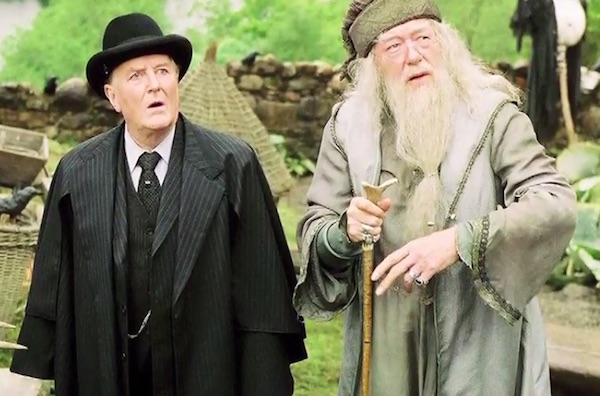
The world of All Creatures Great and Small has remained dormant until now, although a spin-off series, Young James Herriot (2011), exploring his life as a veterinary student in Glasgow in the 1930s, received a lukewarm response.
Then in 2015, word went out that HBO was considering a remake of the original series—a hipper, sexier version starring (possibly) Sarah Jessica Parker (Sex and the City) as Helen, Hugh Laurie (House) as Siegfried, and Dominic West (Les Miserables) as James Herriot. Thankfully, the rumor remained just that. (The mind boggles.) A more traditional remake - complete with an age-appropriate cast and a relatively unknown young lead - is headed to PBS' Masterpiece in January 2021.
The original series crossed the pond to PBS in 1979 and The New York Times squeezed out what passes as a positive review:
Earthy details of farm life are scattered about liberally. Personalities begin to emerge. There is always an element of humor. …There are flaws, to be sure. One can be singled out only in terms of American audiences. In addition to the locations, the Yorkshire accents are authentic and, in several instances, they are almost impossible for the uninitiated to decipher. "All Things Great and Small" can become a touch too self‐consciously cute at times, but the overall story holds. The charm survives remarkably intact.
Let’s talk about All Creatures Great and Small past and future. What are you looking forward to in the new remake and if you remember the original series, what has stayed in your mind?


